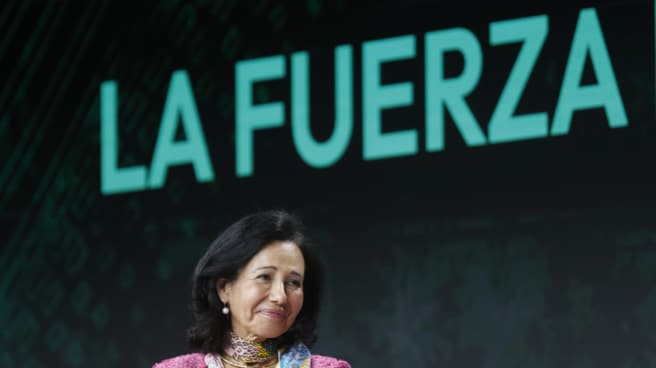

Santander Bank President Ana Botín during her speech this Monday at the XXVI National Congress of Family Business, which takes place in Bilbao
Ana Patricia Botín is one of the most powerful and influential women in our country. The president of Banco Santander knows her voice is being heard, despite some aspects she says are having less impact than she would like. Without a doubt, the value and presence of women in the business world is one of its constant flags. Today I was not going to miss the event during the National Family Business Congress in Bilbao. From the stage, in a conversation with Iberostar CEO Sabine Fluxa, she demanded recognition of women: “When a woman applies for a position, her qualifications are 120%, when a man does it many times, it is 50% or 60%.”
Before a predominantly male audience, murmurs were not long in coming. “This is true, although many find it difficult to believe,” he assured. Botin assured that women in the business world continue to behave even “much more modestly”, despite the fact that their training is comparable or superior to men’s, “in general we trust ourselves less.”
She expressed regret that even today, women’s professional growth continues to experience a significant slowdown after the birth of children. He addressed businessmen present at the Euskalduna Palace in Bilbao with their daughters and urged them to “give them opportunities.” He assured that this “family tax,” which is “almost always paid by women,” is not something specific to Spain or Latin American countries, but rather occurs “all over the world.”
Botín championed the value that “gender diversity” brings to a company’s management and operations, including at the highest levels of decision-making: “There needs to be diversity, not just of gender, but also of age, race and experience.”
“Imbalance” in the employment sector of the future
During his speech, he mentioned the difficulties of attracting and retaining talent. He recalled that in the coming years, millions of jobs will be lost and many more will be created, but for which there will be insufficient qualifications. This “imbalance” between demand and supply of jobs will be one of the greatest challenges of the future, as continuous skilling and updating education will become important avenues.
Finally, Botín advocates the need to not neglect the balance between economic benefits and social responsibility of companies. The president of Banco Santander noted that there is “no conflict” between both goals, as is sometimes noted. He called it “helpful” to take profits and use some of them to invest in the community: “We use a third of our profits to pay taxes, another third to new loans and a third to new shareholders.”
Source: El Independiente